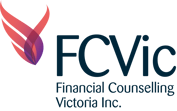For many people, the financial impacts of a disaster are unavoidable; unexpected costs to rebuild or repair; clean up expenses; lost or reduced income; bills piling up that have become too much to deal with. Left unaddressed, these issues can cause further stress and negatively affect someone\’s mental health, create tension that puts a strain on personal relationships, and lead to people sacrificing basic necessities such as food, shelter and safety just to make ends meet.
There\’s no argument that financial counselling is a vital support in the aftermath of a disaster and should form part of any government\’s emergency response plan – be it local, state or federal. The challenge is to ensure we have a sector that is ready and capable to respond, and that the financial counselling service is accessible and integrated within recovery support networks. FCVic’s work in the Victorian Government’s Storm and Flood Recovery Program is taking steps to bring us closer to that objective.
In October 2021, the Victorian Government, through Consumer Affairs Victoria, provided funding to five agencies to deliver financial counselling to local residents recovering from the storm and flood events that damaged homes and businesses across the state in June 2021. The five agencies are Anglicare Victoria in Gippsland and Bendigo, Cafs Ballarat, EACH, and South East Community Links. FCVic received funding as part of the program to coordinate and support the response effort by building sector capacity, creating connections with other support services, and undertaking advocacy around key policy issues.
The early focus of the program has been to ensure that the eight financial counsellors, employed across the five agencies, are appropriately trained and well-resourced to attend to community outreach. To that end, the program has benefitted from the support and collaboration of the agencies, as well as the knowledge and experience of the bushfire recovery financial counsellors who generously shared their insights as specialists in disaster recovery. Several of our bushfire recovery financial counsellors have also volunteered to act as mentors for those practitioners with limited previous experience in disaster recovery.
FCVic has brought together the storm and flood recovery financial counsellors with the bushfire financial counsellors to establish a new Disaster Recovery Community of Practice. The Community of Practice provides an opportunity for members to share information, discuss issues related to disaster recovery, and, importantly, support each other in this rapidly changing environment.
FCVic has captured their learnings, along with key resources, information, and contacts, in order to produce a Disaster Recovery Financial Counselling Toolkit. The Toolkit, which is still in development, has been designed to guide and support financial counsellors deployed in response to future disaster events, and will enable a swift upskilling of the workforce.
The financial counsellors involved in the Storm and Flood Recovery Program have been proactive in their communities – getting out and about and collaborating with services and local council to meet with affected Victorians. Being on the ground, present and available is crucial to ensuring that disaster-affected communities have access to – and awareness of – the supports they need. This important component of the disaster recovery financial counselling role is recognised by Consumer Affairs Victoria through more flexible service targets that allow agencies to have a greater focus on the establishment of community awareness of the service.
In many ways, the COVID environment has dampened the ability of the financial counsellors to undertake community engagement activities. However, the agencies and their staff have demonstrated their dynamism and creativity in finding new ways to connect. FCVic has also played its part in building relationships with other workers in the disaster recovery space. In October, FCVic delivered five webinars on ‘Navigating the Financial Impacts of Disaster\’, which informed community and support workers of the role of financial counselling in disaster recovery, as well as providing tips for identifying someone who would benefit from a referral to a financial counsellor. The sessions, attended by representatives from 16 different organisations across Victoria, were well received and a further two sessions have been run for January 2022.
The funding for the Storm and Flood Recovery Financial Counselling Program continues until the end of June 2022, which in itself presents a challenge. We know from previous disasters that the recovery timeline is different for everyone. Some people need time before they are ready to seek assistance, while for others the financial implications of the disaster take months to play out and only after they are no longer able to stay on top of the issues do they come forward for support.
This does not keep us from wanting to get the message out there and encouraging people to seek assistance, but it highlights for us the importance of the integration of financial counselling into any disaster response. With early intervention of financial counselling – firmly embedded and available in the initial aftermath of an event – and sufficient capacity to address the long-term needs for recovery, we can mitigate the financial impacts, minimise harm to mental health, and support stronger community recovery.
